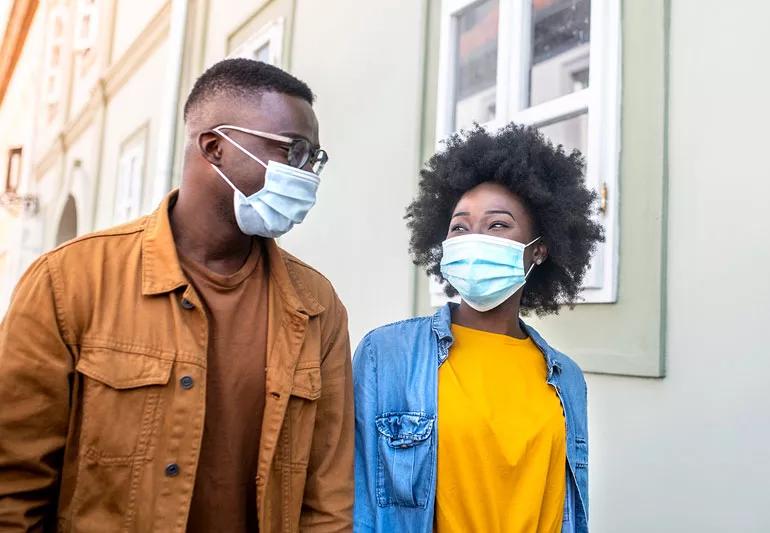The short answer from an infectious disease specialist

Image content: This image is available to view online.
View image online (https://assets.clevelandclinic.org/transform/809a9349-0dc3-4c3e-b16a-31f339a1b99c/faceMasksProtectCouple-1273627467-770x553-1_jpg)
Couple wearing face masks walking down street
A: A face mask provides protection to those around you, as well as yourself. Face masks act as barriers for respiratory droplets. Whether you’re coughing and the droplets catch in the inside of your own mask, or if you’re near to someone else coughing and their droplets hit the outside of your mask – it protects both people.
Advertisement
Cleveland Clinic is a non-profit academic medical center. Advertising on our site helps support our mission. We do not endorse non-Cleveland Clinic products or services. Policy
Also, respiratory droplets aren’t spread solely by coughing and sneezing. They can be expelled by talking, singing, breathing heavily, laughing – you name it. That’s why it’s crucial to wear a face mask anytime you’re in public and cannot maintain social distance. You’re protecting those around you and also yourself.
Typically, a surgical mask will protect you more than a cloth mask because of the material it’s made from, but a cloth mask still offers great protection. Small respiratory droplets carrying the virus can get caught in the cloth and not reach your nose or mouth. Just be sure not to touch the front of your mask as the virus can then get on your hands.
– Infectious disease specialist Kristin Englund, MD.
Advertisement

Sign up for our Health Essentials emails for expert guidance on nutrition, fitness, sleep, skin care and more.
Learn more about our editorial process.
Advertisement
A pediatric psychologist weighs in on continued masking for kids
The short answer from an infectious disease specialist
What to know about running in a face mask during the coronavirus pandemic
Proper etiquette for asking others to comply with mask rules
Learn how one simple action can help keep the whole family safe
Talking points from a healthcare provider
The short answer from an infectious disease specialist
Make it easier to hear and be heard
Type 2 diabetes isn’t inevitable with these dietary changes
Applying a hot or cold compress can help with pain
Pump up your iron intake with foods like tuna, tofu and turkey